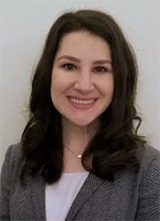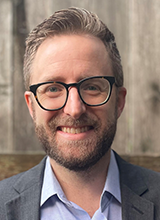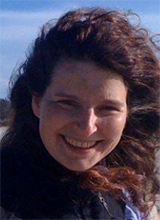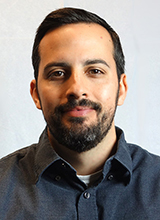I am a developmental psychologist with additional training and expertise in quantitative methods. I am an associate professor in the UW Department of Psychiatry and Behavioral Sciences, a core member of the Center for the Study of Health and Risk Behaviors (CSHRB), faculty affiliate of the Center for Studies in Demography and Ecology (CSDE), and adjunct faculty at the UW School of Social Work. My main collaborations at UW involve colleagues from CSHRB but I also maintain strong research collaborations with my colleagues from the Social Development Research Group (SDRG), School of Social Work, and other departments. In addition to research, I occasionally teach graduate-level classes on research methods and evaluation in social welfare (SOCW505, SOCW506, SOCW507) and research and theory (SOCWL599) at the School of Social Work. I am also actively involved in mentoring graduate students and postdoctoral fellows.
Personal Statement
I am a board certified child and adolescent psychiatrist in the Pediatric Clinic at Harborview, Seattle Children’s Hospital, and Odessa Brown Children’s Clinic in the Division of Psychiatry and Behavioral Medicine.
In my clinical work, I strive to create active partnerships with my patients and their families to achieve the best possible outcomes regardless of their needs and circumstances. I am lucky to have great behavioral health and primary care partners across the different clinics I work in, who are invaluable collaborators in caring for our patients and families.
I am involved in the child and adolescent training program and supervises trainees at several outpatient clinics. My clinical and research interests include integrating mental healthcare into primary care settings, ADHD, disruptive behaviors, aggression, trauma-related disorders, and improving clinical supervision of child and adolescent psychiatry trainees.

Personal Statement
Dr. Cadigan is an Assistant Professor and licensed psychologist in the Department of Psychiatry and Behavioral Sciences. She received her Ph.D. from the University of Missouri in 2016 and then completed clinical psychology internship and fellowship at the University of Washington Medical Center.
Her program of research focuses on adolescent and young adult health and wellbeing, with an emphasis on the etiology, prevention, and intervention of substance misuse and co-occurring mental health concerns. This work aims to develop, test, and disseminate innovative prevention and intervention programs to reduce substance misuse and improve mental health among adolescents and young adults. This work has included developing and testing programs for young adults who use substances to cope with negative affect and loneliness. Her work has also examined etiological factors related to co-occurring mental health and substance use, including the effects of loneliness, depression, coping motives, social support, solitary substance use, and factors associated with improving access to mental health care.
Clinically, she works with adolescents presenting with depression and suicidality at Seattle Children’s Hospital in the Behavioral Health Crisis Care Clinic and in the Mood and Anxiety Program.
- Recent Grants:
- Development of a behavioral economic intervention with personalized resource allocation feedback to reduce young adult alcohol misuse (PI: Cadigan, NIH/NIAAA1R34AA029478)
- Development of an interactive, we-based drinking to cope intervention and tools to assess coping skill utilization (PI: Cadigan, NIH/NIAAA R34AA028074)

Personal Statement
My research is focused on (1) developing innovative mHealth assessments and interventions for schizophrenia-spectrum disorders and cross-diagnostic persecutory ideation, as well as (2) “engagement mHealth,” or the development of mobile health interventions that increase the likelihood that underserved populations present to and receive evidence-based treatment, with a particular focus on young adults at risk for psychosis and their families. My research is supported by a NARSAD Young Investigator Award from the Brain and Behavior Research Foundation and multiple grants from NIMH including a K23 Mentored Patient-Oriented Research Career Development Award.
Prior to my faculty position at UW, I was an Advanced Fellow in VA Health Services Research and Development and the Department of Health Services at UW. I completed my clinical psychology internship at the VA Puget Sound Health Care System, where I was awarded the APA Division 18 Outstanding VA Trainee Award. Prior to internship, I completed my undergraduate and doctoral training at the University of North Carolina at Chapel Hill. Throughout my training, I have been dedicated to services for individual with serious mental illness, with experience in an inpatient state hospital, VA psychosocial rehabilitation, intensive outpatient and dual-diagnosis clinics, and in coordinated specialty care for young people with early psychosis.
In addition to my program of research and clinical work, I am committed to clinical supervision and training. I currently lead the development of one of the first clinical training sequences designed for frontline clinicians integrating mHealth into community mental health. I was the first-ever graduate student to win UNC’s David Galinsky Award, an honor recognizing excellence in clinical supervision that had previously only ever been won by faculty. I am currently active in providing supervision in CBT to third-year psychiatry residents at UW.

Personal Statement
My program of research focuses on understanding how psychological, social, and situational factors influence young adult substance use and also the development of brief interventions for young adults. In particular, my research investigates processes influencing substance use behaviors from day-to-day or moment-to-moment. I use different types of daily-level or ecological momentary assessment (EMA) designs to elucidate why and how substance use varies across different occasions for a given individual in relation to changes in cognitions and contextual characteristics. My program of research enhances our knowledge of the etiology of substance misuse to inform the refinement and development of brief personalized feedback interventions as well as real-time interventions.
I am currently Multiple Principal Investigator (MPI Fairlie/Ramirez) of a NIAAA-funded grant (R34AA027302) developing two versions of an online personalized feedback intervention that focuses on alcohol cue reactivity among young adult drinkers; the study includes a lab component with an alcohol cue reactivity session as well as an EMA component (daily surveys up to 4x/day over 17 days). In addition, I am the PI of a NIDA-funded grant (R21DA050131) that investigates marijuana-specific self-regulation processes in relation to marijuana use and consequences both across days and throughout the day to identify how psychological states and contextual factors influence these self-regulation processes using an EMA design (daily surveys 4x/day over 2 weeks). As PI, I completed data collection for a grant that examines unplanned heavy drinking, protective behavioral strategies, and alcohol-related consequences using daily surveys administered over eight consecutive weekends (NIAAA; R21AA024156).

Personal Statement
The transition to adulthood is the developmental period when alcohol use, marijuana use, and their associated consequences reach their lifetime peak. My scholarly interests focus on the etiology and prevention of substance use behaviors and consequences during adolescence and young/early adulthood. I have developed a highly successful portfolio of work bridging developmental, social, and motivational theory with applied prevention and intervention techniques to strategically address high-risk behaviors during the transition to adulthood.
My research addresses important questions regarding how recent marijuana legislation in Washington State impacts young adult marijuana use and consequences; what motivates young adults to engage in alcohol and marijuana use; how alcohol expectancies, alcohol use and consequences are linked in a natural feed-forward process that maintains high-risk behaviors; how developmental transitions and event timing influence use; and what are efficacious prevention and intervention strategies and for whom and under what conditions are these most effective.
Dr. Russell’s professional interests include ADHD, integrated/collaborative care, prevention and complementary/integrative approaches to child and adolescent mental health. He takes a holistic approach to psychiatric well-being that extends beyond medications and psychotherapy to include other evidence-based practices shown to improve brain health including regular exercise, time in nature, supportive social interactions, mind-body activities, good nutrition and sleep hygiene.
Personal Statement
I came to the University of Washington in 2014 as a postdoctoral fellow supported by the National Institute on Alcohol Abuse and Alcoholism and has been faculty here since 2016. My research interests include examination of cognitive and psychosocial processes thought to underlie substance misuse predominantly among adolescents and young adults. Support for my work has been provided by the National Institute on Alcohol Abuse and Alcoholism, the National Institute on Drug Abuse, and by the Alcohol and Drug Abuse Institute at the University of Washington.
Personal Statement
I am interested in methods of evidence translation and knowledge exchange that improve system and policymaking in behavioral health with a focal interest in public mental health for children and juvenile justice system reform.









